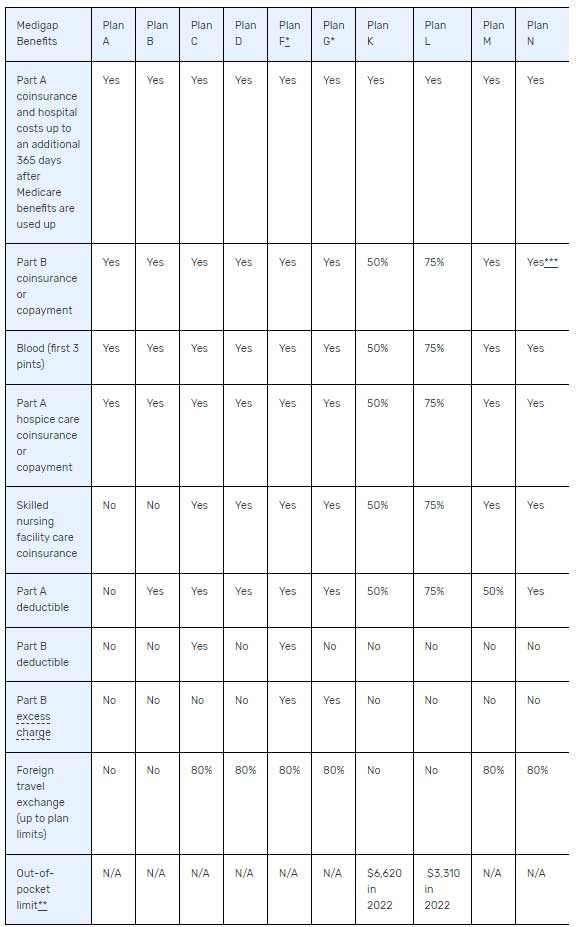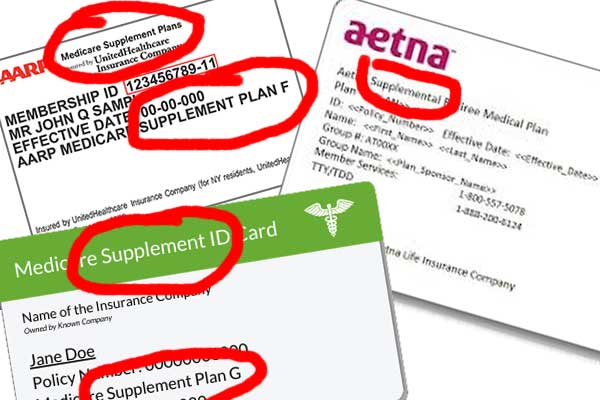Yes, Medicare supplemental plans, also known as Medigap plans, do cover physical therapy services.
These plans are divided into plan names based on letters. Below is a screenshot from Medicare.gov showing the list of possible plans.

To see what each plan covers, Medicare.gov has also published this table.

Does a physical therapist who is contracted with Medicare Part B need to also contract with the Medicare supplemental plan provider?
No! If a physical therapist or occupational therapist is a contracted participating provider with Medicare Part B then the supplemental plan does not require you to also individual contract with them.
The supplemental plan will pay you, the provider, based on the Medicare allowed amount coinsurance and the particular plan’s coverage.
What is a non-supplemental secondary?
A non-supplemental secondary insurance plan could be a stand-alone policy from a spouse’s employer or a different kind of health insurance plan that is not a supplemental plan.
For example, if the patient is a Medicare part B beneficiary and has a spouse who is still employed and has an insurance plan through that employer. The spouse’s insurance coverage could act as a secondary to the patient’s Medicare part B coverage for physical therapy services.
In this case, the secondary plan is not a Medicare supplemental and is not required to pay if the provider is not contracted and the plan does not offer out-of-network coverage.
Other reasons a non-supplemental secondary insurance plan might not pay for physical therapy.
If the non-supplemental secondary insurance has its own patient cost share in the form of a deductible, copay, or co-insurance and the patient cost share is greater than the 20% Medicare part B coinsurance then the balance due would flow through the secondary plan to the patient and the patient would be responsible for payment.
How to identify a supplemental vs non-supplemental secondary insurance policy.
In some cases, the Medicare supplemental insurance card will say “supplemental” somewhere on the card. It might also have the plan name as in “Plan G” somewhere on the card.
Not all supplemental insurance cards will say supplemental, but if you call the provider relations number on the card to verify the coverage you will be able to confirm that it is or is not a supplemental.

Conclusion:
* Yes, Medicare supplemental plans will pay for physical therapy services even when the provider isn’t contracted with the plan payer.
* No, a non-supplemental secondary plan is not required to pay the Medicare Part B Coinsurance if the provider isn’t individually contracted with the plan payer.
Related articles:
How to Choose a Location to Open a Physical Therapy Clinic in 2022
1. Understand Your Ideal Client Everything begins with knowing who your ideal client is. If you are focused on treating post surgical total knee referrals you will want to choose a physical therapy clinic location with easy access parking, no stairs or curbs, and wide...
How to Pick a Business Name for a Physical Therapy Practice in 2022
Let the Marketing Dept Pick a Business Name for Your Physical Therapy Practice. While your physical therapy business name is important, don't let it slow you down. Too many aspiring business owners stall for months in trying to choose a name. There are several...
Is a Physical Therapist a Doctor in 2022
Is a physical therapist a doctor? Yes, a physical therapist who has earned a doctorate degree in physical therapy is a doctor but not a physician. A doctor of physical therapy may use the term doctor when referring to him or herself as "Doctor Jane Does, doctor of...

Anthony Maritato, PT
Physical Therapy / Private Practice Owner
Being a licensed physical therapist has always been a passion of mine. The best way I have found to protect that passion is by creating AMAZING cash-generating money machines that provide financial security and freedom thereby allowing me to continue treating patients for the joy of treating patients.




